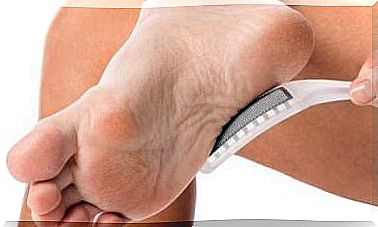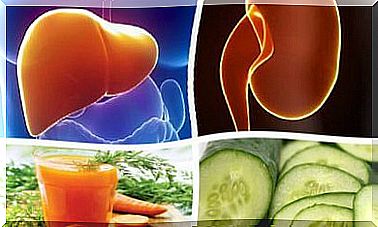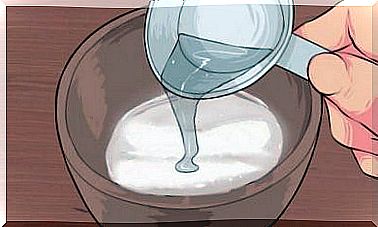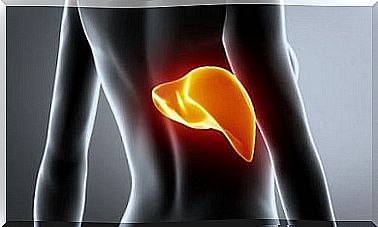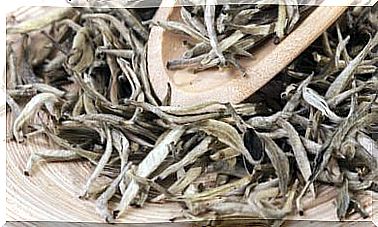7 Eating Tips To Treat Gastroesophageal Reflux
To control gastroesophageal reflux, it is essential to limit the consumption of certain irritating foods that produce acidity in the stomach . In addition, it is advisable to eat several times a day and consume probiotics.
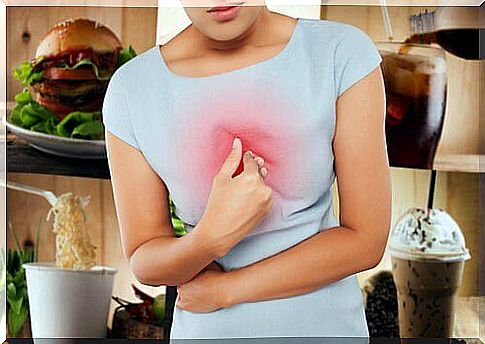
A good diet is one of the keys to treating gastroesophageal reflux disease. Although it is also necessary to practice other good eating habits. Following a healthy, balanced diet can help control the symptoms of gastroesophageal reflux disease, especially when it tends to recur.
This disorder develops when stomach acids move up the esophagus and mouth due to a weakening of the esophageal sphincter. It is described as a burning sensation in the breastbone, which may be accompanied by chest pain and heartburn.
Although gastroesophageal reflux disease is usually mild and rarely represents other serious conditions, care must be taken so that it does not become a chronic disorder.
Therefore, in addition to following medical recommendations, it is important to take preventive measures by following a proper diet.
In this article, discover the most common causes and symptoms of gastroesophageal reflux, as well as our advice and several natural remedies to treat and relieve this disorder.
What is gastroesophageal reflux?
Gastroesophageal reflux refers to the ascent of part of the contents of the stomach into the esophagus, the conduit connecting the mouth to the stomach. The stomach produces gastric juices, which are very acidic substances that help in the digestion of food.
However, the lining of the esophagus is not designed to resist the acidity of stomach contents. Reflux therefore causes inflammation of the esophagus, which results in burning and irritation. Over time, damage to the esophagus can ensue.
What are the causes of gastroesophageal reflux disease?

The main cause of gastroesophageal reflux disease is the excessive production of stomach acids. These gastric juices cause inflammation and weakening of the muscle that surrounds the lower part of the esophagus, the esophageal sphincter, which allows passage to the upper part.
In most people who have it, gastroesophageal reflux disease results from a malfunction of the lower esophageal sphincter. This sphincter is a muscle ring located at the junction of the esophagus and the stomach. Normally it is tight, preventing stomach contents from moving up to the esophagus, opening only to allow ingested food to pass through and thus acting as a protective valve.
In the event of reflux, the sphincter opens at the wrong times and allows gastric juices to rise from the stomach. People who suffer from reflux often have acid regurgitation after a meal or at night. This regurgitation phenomenon is very common in infants, because their sphincter is immature.
Gastroesophageal reflux disease can also be linked to a hiatus hernia. In this case, the upper part of the stomach located at the junction of the esophagus, goes up with the esophagus into the rib cage through the orifice of the diaphragm, the hiatal orifice. However, hiatus hernia and gastroesophageal reflux disease are not always related.
Risk factors for gastroesophageal reflux disease
The main risk factors for gastroesophageal reflux disease are:
- Obesity or overweight (increased intra-abdominal pressure)
- Impaired esophageal emptying ability
- Hiatal hernia
- Immaturity of the cardia
- Esophageal surgery
- State of pregnancy
- Connective tissue disorders, such as scleroderma
- Alcoholic drinks and cigarettes
- Irritating and spicy foods
- Coffee and other stimulating drinks
- Certain medications, such as aspirin
Symptoms of gastroesophageal reflux disease
The most common symptom of gastroesophageal reflux disease is a severe burning sensation in the chest area, usually after eating. The patient may also suffer from burns behind the breastbone after meals, as well as a nocturnal cough during sleep. Pain also appears when ingesting very cold or very hot drinks.
All of these symptoms are often amplified by actions that increase the pressure in the abdomen. This disorder is also usually accompanied by other discomforts which may last a few hours, among which the most common are the following:
- Difficulty swallowing meals
- Regurgitation of acidic foods or liquids
- Sensation of a lump in the throat
- Chest pain
- Chronic cough
- Sleep problems (if the reflux is nocturnal)
For the majority of adults with gastroesophageal reflux disease, symptoms are chronic. In infants, reflux usually resolves between 6 and 12 months as the child grows.
Treatments most often provide complete, but temporary, relief from symptoms. However, they do not cure the disease.
If the patient is young, sometimes examination is sufficient to diagnose gastroesophageal reflux disease. The gold standard is endoscopy, which visualizes the esophagus and diagnoses esophagitis or other lesions.
How to treat gastroesophageal reflux disease with food?
Changing eating habits is one measure that can help prevent and treat gastroesophageal reflux disorder. It should not be ignored that many cases are triggered because of an unhealthy diet rich in acidic and irritating foods.
What can you do if you have gastroesophageal reflux disease? To fight against gastroesophageal reflux, it is recommended to favor foods that are easy to digest and that protect the digestive system. This is the case for foods rich in soluble fiber, lean protein and Omega-3 which are to be included in the diet. In addition, regular physical activity and fractional feeding can prevent most symptoms associated with gastroesophageal reflux disease.
We are now going to give you several tips and natural remedies that will help you reduce gastroesophageal reflux disease.
1. Drink aloe vera juice
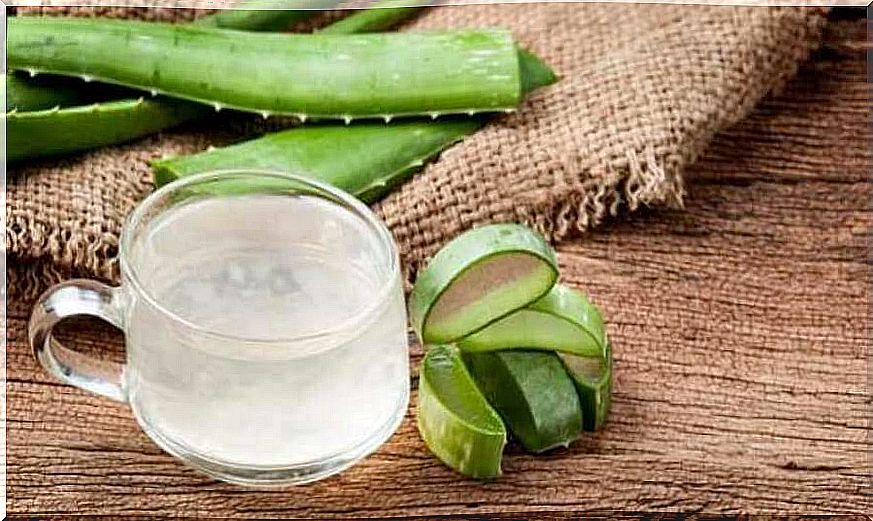
The soothing and antacid properties of aloe vera juice can help treat gastroesophageal reflux disease naturally. This healthy drink neutralizes the action of acids in the digestive system and helps restore altered pH.
Besides, aloe vera juice has anti-inflammatory and regenerative effects that reduce irritation of the stomach lining in order to avoid complications such as ulcers or gastritis. However, you should consume it in moderation, as it also acts as a laxative.
2. Limit irritating foods
Certain foods should be avoided in case of gastroesophageal reflux disease. Either because they are irritating, or because they promote overweight and abdominal pressure. This is the case for fatty, refined foods, alcohol or even certain drinks. Reducing their intake can help decrease symptoms associated with gastroesophageal reflux disease.
Dieting high in irritating foods is a common cause of gastroesophageal reflux disease. Therefore, if the goal is to combat it and prevent its recurrence, it is essential to limit as much as possible the intake of food or drink that irritates the stomach. The most common triggers for this disorder are:
- Cold cuts
- Refined flour
- Sweets and pastries
- Spicy condiments
- Canned food
- Fried and industrial foods
- Carminatives such as garlic and onions
- Citrus fruits and tomatoes
- Coffee and products containing caffeine
- Whole dairy products
- Butter and vegetable fats
3. Eat five times a day
The good habit of eating five meals a day and reducing the portions of the dishes also has a positive impact on the treatment of this symptom. This helps reduce the amounts in each dish to aid digestion and maintain control over acid production. By following this good habit you should notice an improvement in the symptoms of gastroesophageal reflux disease.
4. Chew food well
Eating slowly and chewing food well is crucial in treating gastroesophageal reflux disease. Although many people ignore it, the ingestion of whole foods impedes digestion and alters the secretion of stomach acids. For this reason, if you chew food well, you are improving one of the possible causes of gastroesophageal reflux disease.
5. Consume probiotic foods
Probiotic foods contain “live cultures” of bacteria that help maintain pH balance in the stomach. Therefore, when there is an acid deterioration that produces reflux, the ideal is to increase their consumption in prevention as part of the treatment. Some of the available options are:
- Kefir
- Fermented cabbage
- Natural yoghurt
- Fermented pineapple
- Sauerkraut
- Lacto-fermented onions
6. Drink water with lemon on an empty stomach
Consuming lukewarm lemon water on an empty stomach is one of the traditional remedies for treating gastroesophageal reflux disease. In fact, it has always been recommended as an ally to aid digestion. Its alkaline effect neutralizes acids and makes the digestion process lighter. You will notice an improvement in gastroesophageal reflux disease when you drink this natural lemon water remedy on an empty stomach.
7. Avoid eating before sleeping
One of the eating mistakes that triggers acid reflux is eating large and irritating meals in the hours before resting. Although it may seem “harmless”, this habit makes it easier for acidic juices to return to the mouth and triggers other digestive ailments.
Since the body remains in a supine position, acids can easily flow back up through the esophagus. Therefore, it is best to eat about three hours before going to bed and consume only light foods.
It is important to avoid gastric reflux so as not to suffer from more serious complications such as, for example, an ulcer in the esophagus or the famous Barrett’s syndrome, chronic irritation of the throat and esophagus due to the action of stomach acids.
Do you have recurrent gastroesophageal reflux disease? Remember, in addition to following these tips, you should stop smoking and avoid stressful situations. If your condition does not improve, see your doctor to determine if this disorder is due to an underlying cause.
In addition to the usual symptoms, a person who suffers from gastric reflux regularly may also suffer from tonsillitis, snoring, coughing attacks, and pain in the throat. In this article, you will discover herbal remedies to treat gastric reflux pain, but also some interesting information on this subject.


